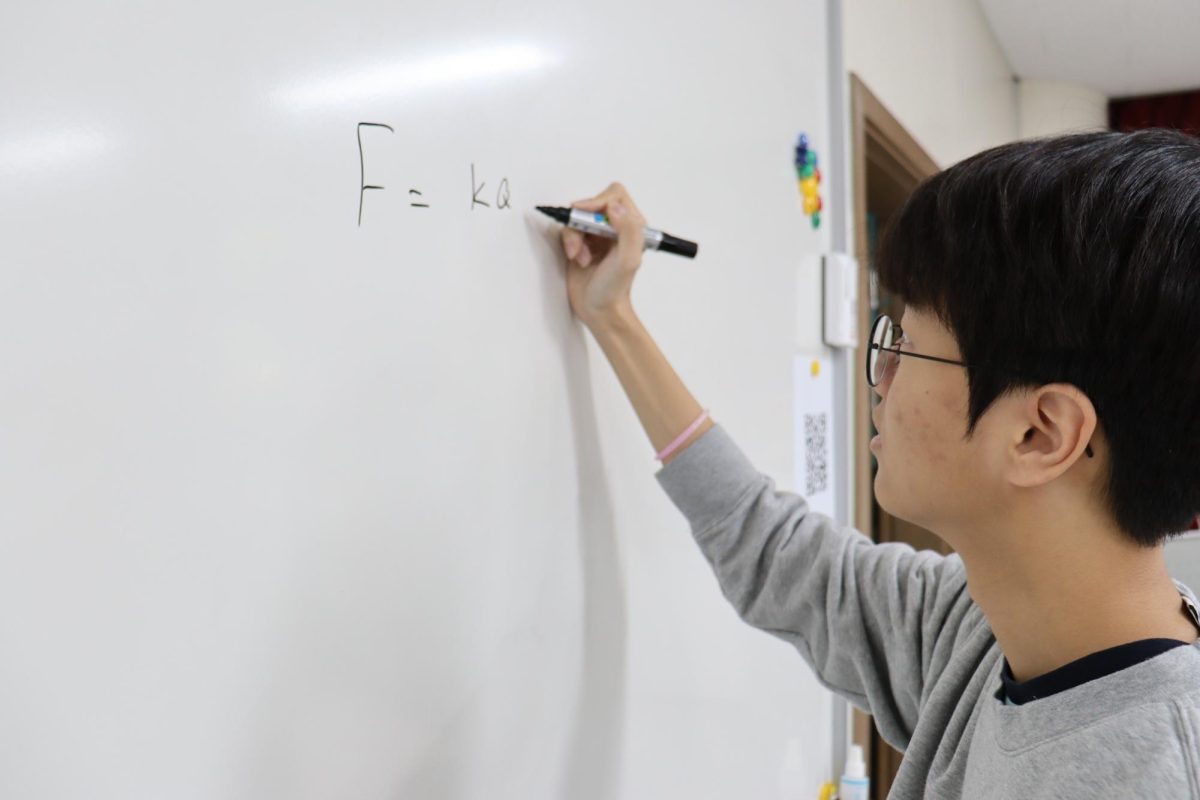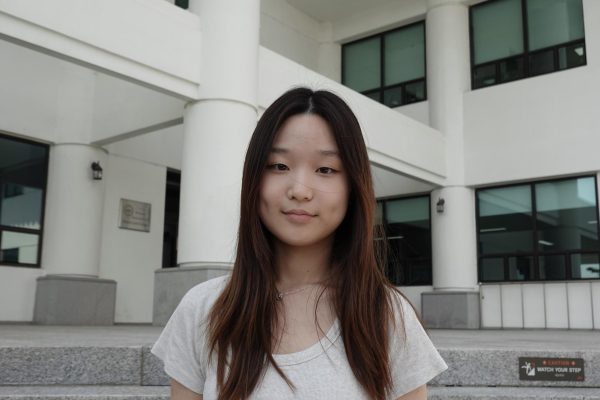Ian Park (12) rose to grade-level fame after being one of 23 students worldwide to score perfectly on his AP Chemistry test.
By conducting this interview, students who plan to take AP Chemistry or courses of the same rigor may gain some study methods that they could utilize in their academic endeavors.
Q. Did you feel as though you scored a hundred after taking the AP Chemistry test?
Ian: I didn’t know that I would get a hundred, but I felt as though I did well on the test and was most of all relieved to get the test over with.
Q. What do you think made this test so difficult for the vast majority?
Ian: I think in general, most SIS students did very well. There were some questions that required you to remember the very specific information, which was very hard.
Q. Is there a specific way you chose to study for this test?
Ian: I stayed after school and solved practice problems that Dr. Tyvand offered, and I also sought help from her on how to solve certain FRQs and also to refresh my memory on certain concepts.
Q. Do you think that going to Dr. Tyand’s room often to prepare for the test was what helped you to get a perfect score?
Ian: No, I wouldn’t say that I was the only student who went to her for help because several other classmates did this with me.
Q. How do you regularly study? Do you have a method for memorization or more?
Ian: I don’t think I have a special way of studying, but I think I try to do my formative work and not cram in studying for a test all in one day. I’ll try to listen to lectures and figure out certain concepts ahead of time.
Q. How long did it take you to study for the AP Chemistry exam?
Ian: I guess I studied for the AP Chemistry exam for around a month. I’m not really sure, actually.
Q. Would you say that your success on AP Chemistry is more based on memorization or understanding the concepts?
Ian: I think AP Chemistry is definitely the middle ground between having to memorize a lot of things and knowing the concepts. There’s definitely a lot of concepts but there could be more memorization for other subjects like AP Biology. But there is quite a lot to memorize in AP Chemistry since it has nine units, which is more than other subjects. I wouldn’t say it’s the hardest science course, however.
Q. What other APs are you taking this year?
Ian: I’m taking AP Physics 2, AP Literature, AP Environmental Science, AP Statistics, and AP Calculus BC.
Q. How do you balance your time studying along with other extracurricular activities?
Ian: Right now, I try to get a lot of my work done early. I wouldn’t say I don’t procrastinate, but I really try to prevent myself from cramming in things last minute because I feel like the quality of your work and studying can really go down. My goal is just to try to get things done early.
Q. Do you have any advice for students who are planning to take AP Chemistry next year?
Ian: I think it’s really important to solve a lot of problems for the AP Chemistry exam. I think Dr. Tyvand left behind some practice problems with Ms. Campbell, so I strongly suggest students to solve those practice tests to prepare for the AP Chemistry exam. Knowing the concepts is different from applying them, especially because AP exams are more than memorizing, they’ll ask you to apply the concepts you learned.
Concluding from Ian’s advice, understanding how to apply the concepts is key for AP Chemistry. However, study methods differ for every student, as factors such as personality, household environment, and more, can play into the productivity and focus of their study habits. Therefore, students should not be too reliant on the study methods of one student, but for future students of AP Chemistry, Ian’s study methods may be one to take note of.


